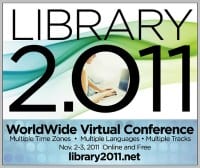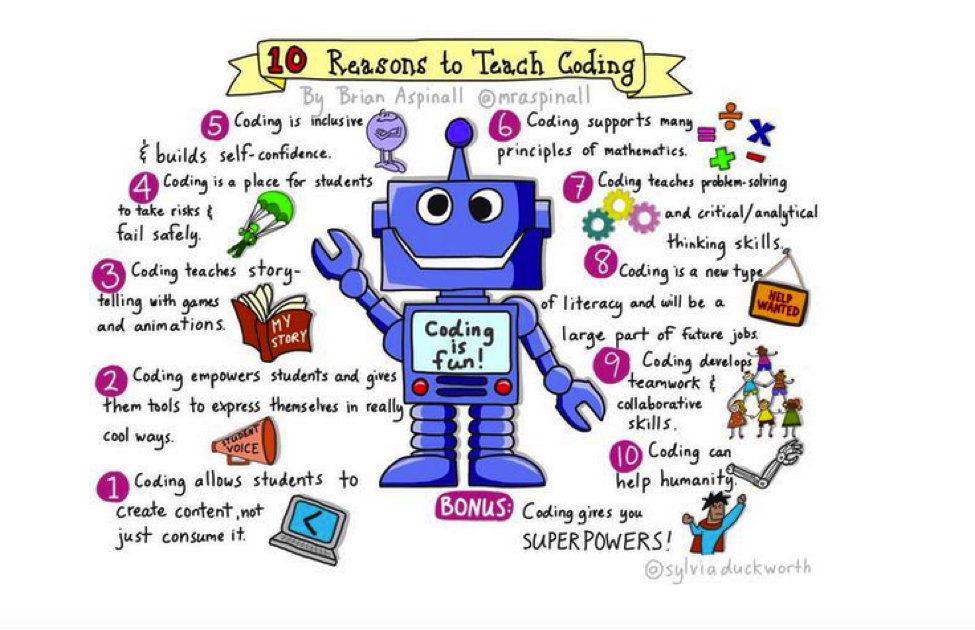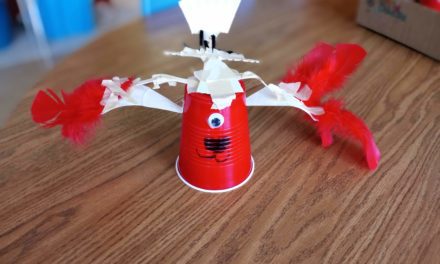
As money gets scarcer, it becomes harder to get to conferences and other professional development events. In the twenty-first century, this is not a reason to miss out on professional development. There are more and more alternatives both synchronous (you meet in a virtual space at a specified time) or asynchronous (the session is recorded and may be watched / listened to at any time). Each has advantages. All the virtual conferences listed below are free – and in this case the price does not reflect the value. Top educators from around the world have contributed to these conferences.
Preconference Keynote: November 21
Week 1 sessions: November 28 – December 2
Week 2 sessions: December 5 – 9
For the past five years, I have been participating in the K12 Online Conference. I have learned so much from the many educators who have freely shared their practice. Most of the sessions are asynchronous – not more than 20 minutes long. All sessions have been archived from 2006 to the present. You can watch at your leisure, learning from teachers and other educators from around the world. You can download them or watch online. It’s great to watch some sessions with fellow educators to spark discussion. This year the sessions will be posted, starting with the keynote on November 21. The following two weeks will feature 4 new presentations each week day with sessions aimed at every level of technology user. The thrust is pedagogy and education in general and how technology can help provide powerful learning situations. (Disclaimer – this is the second year that I have been on the organizing committee).
The Global Education Conference will be held for the second year between November 14 – 18 in Blackboard (a kind of virtual classroom). Sessions are synchronous, but all are archived so they can be watched later, but, or course, you would not be able to participate in the chat room to ask questions. From their site ” Sessions will take place in multiple time zones and multiple languages over the five days. The 2010 Global Education Conference had 15,028 unique logins and presentations from 62 countries.” I managed to attend some sessions last year and they were of very high quality. The chat room also gives you the opportunity to interact with other educators and perhaps, find partners for projects. Last year’s archive is still available.
November 2 – 3
A new conference this year is the Library 2.011, taking place on November 2 and 3. It is sponsored by the School of Library and Information Science at San Jose State University. Although it is not aimed specifically at K12 Education, I am sure there will be many sessions of interest to school librarians. The schedule should be available shortly.
LEARNING 2.0: The Future of Education January 2012
A new conference is on the horizon, spearheaded by Steve Hargadon. It will be held in January. I’ll keep you posted as I learn more. Steve Hargadon hosts a series of interviews with educational leaders. You can learn about upcoming interviews and listen to the archives of past shows here.
![]() Classroom 2.0 Live is not a conference, but a weekly show (though it is on hiatus for the month of October). Each week there is a guest educator who shares classroom practice often around the use of technology. All shows are archived as well as all the resources the guests provide. I know there are some Quebec educators who have participated (I’ve met them when I have been there) and whose students have profited from what their teachers have learned.
Classroom 2.0 Live is not a conference, but a weekly show (though it is on hiatus for the month of October). Each week there is a guest educator who shares classroom practice often around the use of technology. All shows are archived as well as all the resources the guests provide. I know there are some Quebec educators who have participated (I’ve met them when I have been there) and whose students have profited from what their teachers have learned.
Learning can now take place any time, anywhere. It can be done in small increments (20 minutes for a K12 Online session) so you don’t get overloaded. You can watch a session more than once if you missed something or just need a refresher. I know I have watched a few several times as I have either needed a refresher, a boost, inspiration or wanted to share with a colleague. You can pick and choose the sessions that are of interest to you and watch them at a time convenient to you.
One teacher in Shanghai held a LAN (local area network) party, inviting his colleagues to watch sessions together along with food and drinks. It was a great way for colleagues to learn together in an informal atmosphere and to have discussions about education and about changes they wanted to see in their own schools. I have used his model and invited colleagues – it resulted in some great conversations. We want to help our students become lifelong learners. What better way to show them that learning doesn’t stop when you leave school, than to model it ourselves.
Have you taken part in an online session – synchronously or asynchronously? How did it contribute to your learning? Please recommend some sessions you have watched.
Susan van Gelder








This is really useful information! I myself have participated in online sessions where I didn’t know anyone personally and the speaker was in another time zone! It was interesting to see how I was able to engage with the topic at hand, given that none of the usual f-to-f social cues were available. It was certainly a more efficient use of my time, although demanding a certain savviness in terms of online communication.
Some of the online sessions are in Blackboard (formerly Elluminate) which are a little harder to follow and require downloading an app. K12 online sessions are recorded ahead of time, so they can be watched online or downloaded from iTunesU. This is easier for those less comfortable with technology. The other advantage is that they can be watched at any time.
I participated in some of what you mentioned, and indeed it was rewarding every time. I would only add that there are also online “training” sessions available, as a way to develop professionally with regard to a certain skill or area of study. I am thinking here of the SMARTBoard training available online at SMARTTech.com. Many are free and with enough organization and patience a teacher (or a whole staff) could develop their skills as concerns interactive whiteboards with what is available for free and from your home!
You bring up an important point – self-directed learning is an important skill to develop in both ourselves and our students. However, working with others – as you suggest, has the advantages of problem-solving together and supporting each other, whether it is working through the SMART tutorials or watching some online videos together.
Susan, I watched several of the archived sessions, one of which I think was with Chris Harbeck speaking, and they were what started me on the road to getting my classes to blog. Which then lead to me blogging, then flipping, etc etc so it’s been more than helpful for me. More like transformative!
I have recently attended the 5 à 7 pédagogique form Learn & AQEFLS, a refreshing experience. The information presented was useful and motivating as I feel I can start applying the techniques learned to my own practice. This presentation was done synchronously where comments and reflections were welcome. It was a short session after a day’s work that could be attended without making me feel overwhelmed by information. I think this concept really works for busy teachers. It has sparked more motivation in me to attend more of these over the year. Hurray for free resources and training! Thank you for sharing these conference links!